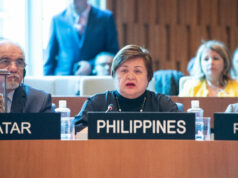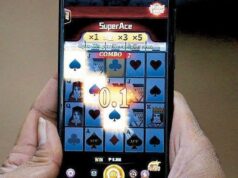
MALACAÑANG on Thursday said it is still evaluating if a ban on Philippine inland gaming operators (PIGOs) is in order.
In a briefing in the Palace, Presidential Communications Office Undersecretary Claire B. Castro said they are still comparing PIGOs with the Philippine offshore gaming operators (POGOs), which had been linked to crimes, such as human trafficking.
“POGO was banned because many crimes were occurring due to POGO operations. However, based on current studies, PIGO has not been found to cause or contribute to any crimes,” she told reporters in Filipino.
She also noted that POGO employed mostly foreigners, while PIGOs reportedly employed 90% Filipinos.
“POGO advertisements result in money flowing out of the country, while PIGO spends its marketing and advertising budget within the Philippines, keeping the funds within the country,” she added.
She also differentiated the tax revenue between POGOs and PIGOs, noting the latter contribute a significant amount of tax revenue.
“Nevertheless, if the issues that arose with POGOs were to happen with PIGOs, the President would not hesitate to impose a total ban on PIGOs as well. However, we will need data to support such a decision,” she added.
Discussions on a potential PIGO ban arose due to concerns that it might lead to similar issues as POGO, such as illegal activities and tax evasion.
The Philippines banned POGOs on Dec. 31, following an order from President Ferdinand R. Marcos, Jr. — Chloe Mari A. Hufana



